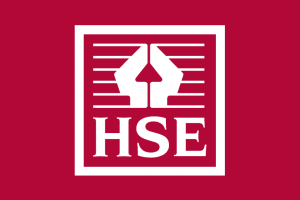Cheshire experts link with Japanese pharma giant on ‘superbug’ drug development

A Cheshire medical site at the centre of fighting superbugs has forged new links to develop next generation treatments to tackle the problem.
The AMR Centre has today (July 22) announced a landmark agreement with the Japanese pharma company Shionogi to take forward its anti-virulence programme, COT-143.
The therapy is designed to help the body tackle Pseudomonas aeruginosa infections, a hard-to-treat drug-resistant pathogen recognised by the World Health Organisation as a critical threat to human health.
COT-143 is a novel humanised monoclonal antibody. It does not kill bacteria directly, but targets an element that prevents the immune system from acting against the infection.
It has already produced encouraging results in pre-clinical studies and regulatory toxicology tests in preparation for first-in-human clinical trials.
The AMR Centre, based in Alderley Park, will further develop the programme, taking it through a good manufacturing practice clinical manufacturing campaign.
It is in discussions about conducting phase one and phase two clinical trials at The Royal Liverpool University Hospital in 2020.
With the completion of this agreement, The AMR Centre will hold the exclusive worldwide right of research, development and manufacturing of COT-143.
Shionogi, a global business with headquarters in Osaka, will share in revenues if the project progresses to market.
Dr Peter Jackson, executive director of the AMRC, said: “COT-143 is an advanced programme that has produced very promising data against a dangerous pathogen that has a great deal of natural resistance to antibiotics.
“So we are very pleased to have reached this agreement and to be able to progress the high-quality science produced by Shionogi.”
He added: “This is also a milestone for the AMRC as it’s the first programme we will get into clinic and tested in people. We have already had exploratory talks with the Royal Liverpool team about the clinical strategy for COT-143.”
He warned: “Our dwindling supply of antibiotics continues to pose a grave threat to global health.
“Projects such as COT-143 are an example of excellent research struggling to progress in the context of market failure around the development of new antibiotics. Our role is to bridge that gap and get these programmes moving forward.”
Yoshinori Yamano, PhD, a chief scientific officer for infectious diseases, of Shionogi said: “We are pleased to collaborate with AMR Centre which has a function to promote clinical development of novel anti-infective agents by utilising various foundations and medical networks.
“This collaboration, if successful, will enable us to move one step closer protecting people from the threat of infectious diseases.”
COT-143 will help to ‘disarm’ Pseudomonas aeruginosa, a dangerous superbug found in soil, water, skin and most man-made environments, that stops the human immune system from acting on it.
Because it thrives on moist surfaces, the bacterium is capable of contaminating medical equipment, including catheters, causing infections in hospitals and the community.
It is associated with serious illnesses such as cystic fibrosis and causes severe infections including pneumonia and urinary tract infections. The consequences of such severe infections include inflammation and sepsis, and often prove fatal.
Established in May 2016, the AMR Centre is a key part of the UK’s response to the global threat from antimicrobial resistance.
It is a company with public and private investors, to support and accelerate the development of new antibiotics.







